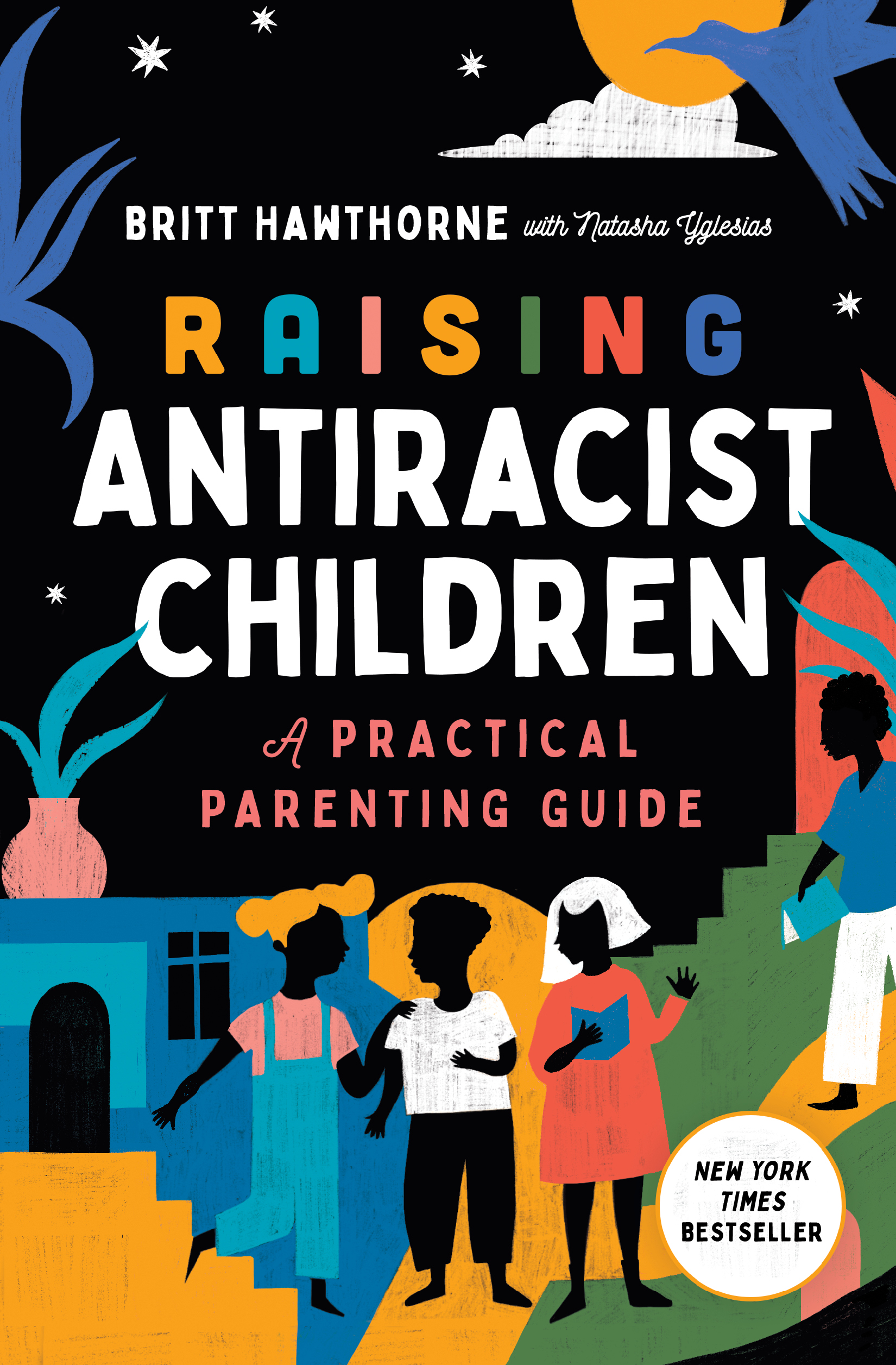Language is a powerful tool—and like all power-wielding things—should be handled with care. It can be used to bridge connections or intentional divisions between people. It can be used to help us better understand our world, or believe lies about it. Throughout human history, language has been a reflection of the unique cultural values of different civilizations. But as our society shifts and changes, some of our language gets stuck in the past. Here are five racist idioms that are still widely used in the English language, and what to say instead.
Is Racism Embedded in Everyday Language?
The words we use to describe our world are exceedingly important. Language isn’t just a tool to express our thoughts, it helps to shape our thoughts. And because we live in a white supremacist society, our language (and thoughts) have roots in white supremacy, too.
Take the symbolism of the colors “white” and “black” for example. Angels always wear white, the devil is always associated with darkness. You whitelist someone because they are trustworthy and blacklist them when they are not. The English language, and its usage, are filled with instances like these. The repetitive association of goodness with whiteness and evil with blackness fuels our implicit biases and encourages racist thoughts.
The Roots of Language Has Influence
While it may seem at first like harmless associations, the roots of language have influence. There are many phrases we use today that feel completely disconnected from their original roots. But the history of the language is important to pay attention to.
While it might seem harmless to use a phrase with a racist past because you don’t intend to use it to be racist, it can still have a harmful impact. For one, it can make a Person of the Global Majority who is familiar with the term’s history feel uncomfortable or unwelcome. For another, it allows racism to remain embedded in our language, subconsciously influencing how we think and understand the world.
“Language works best when it brings as many people into communication with each other. If we know, by using certain language, we’re disinviting certain people from that conversation, language isn’t doing its job.” – Elizabeth Pryor, Associate Professor of History, Smith College.
Five Seemingly Harmless Racist Idioms to Avoid
I encourage you to go through these phrases one by one and reflect on how often the phrases come up in your everyday life. Are you comfortable giving life to phrases rooted in racism? Or would you rather take the extra step to build inclusive, supportive language to build an anti-racist world? The choice is yours. I’m always rooting for you.
1. “Eenie Meenie Miney Moe”
With young children running about, it’s not uncommon to hear this rhyme. Today, it goes like this: “Eenie meenie miney moe/ Catch a tiger by the toe/ If he hollers let him go/ Eenie meenie miney moe.” It’s often used to make a decision, to determine who will be “it” in hide-and-seek and other games.
The phrase has a darker history with roots in the slave trade. Instead of “tiger,” slave owners would use the N-word. The so-called selection song may derive from the selection of enslaved people. The rhyme, in that sense, describes what slave owners would do to enslaved people if they tried to run away.
What to say instead: Sing “One potato, two potato, three potato, four/ Five potato, six potato, seven potato, more.”
2. “No Comments from the Peanut Gallery”
The “peanut gallery” refers to people who give unsolicited advice or a rowdy group of people in the cheap seats of a theater or stadium. The term comes from the vaudeville era of the late 1800s and refers to parts of the theater that were specifically designated for Black people in the segregated U.S.
Educators, please be aware of “no comments from the peanut gallery.” The racist connotation of this phrase is harmful to students and silencing. Instead, encourage engagement with your so-called hecklers.
The “peanuts” part came from the reality that peanuts were often the cheapest food available for purchase, and some hecklers would throw their peanuts at performers they didn’t like. But the negative connotation of the peanut gallery is rooted in racism against the Black Americans who occupied those seats in the back of the theater.
What to say instead: “No comments from the hecklers.”
3. “Sold Down The River”
Today, this phrase is used to signify a significant, extreme betrayal. But its meaning is rooted in chattel slavery, where enslaved people were literally “sold down the river” to plantation owners. Using this language to describe betrayal today can by association water down the history of its origins.
What to say instead: “Betrayed” or “double-crossed.”
4. To Get “Gypped”
To get “gypped” is to get ripped off, cheated, or swindled. The phrase comes from the demeaning word “Gypsy” which is used to describe Romani people. The saying perpetuates an unfounded stereotype that Romani people are untrustworthy thieves. In reality, the Roma have been discriminated against for the past 1,500 years.
What to say instead: To get “ripped off” or “cheated.”
5. Being “Uppity”
An “uppity” person is self-important and arrogant. The image that might pop into your head is of someone who dresses only in the finest clothes, is high maintenance, and has perfectly manicured nails. Unfortunately, as with the other phrases mentioned above, it has a dark history. In the South, the term was used by white people to refer to Black people who didn’t “know their place” or who were not obedient enough.
What to say instead: “Conceited” or “pompous.”
More Racist Idioms and Alternatives
Unfortunately, there’s a lot more where that came from. The English language is riddled with racist idioms and phrases. Here are some more to look into and replace in your everyday speech.
- Replace “New World” with “Turtle Island.”
- Replace “No can do” with “I can’t do that.”
- Replace “Long time no see” with “I haven’t seen you in ages!”
- Replace “The itis” with “food coma”
Language Matters
I hope this has helped you in your journey to uncover ways that you may unintentionally give power to white supremacy around you. I hope this has empowered you to choose new phrases to express yourself and give strength to anti-racism. If you know of any other racist idioms you think I should add to this post, I’m all ears. Thanks for the teamwork, y’all.





